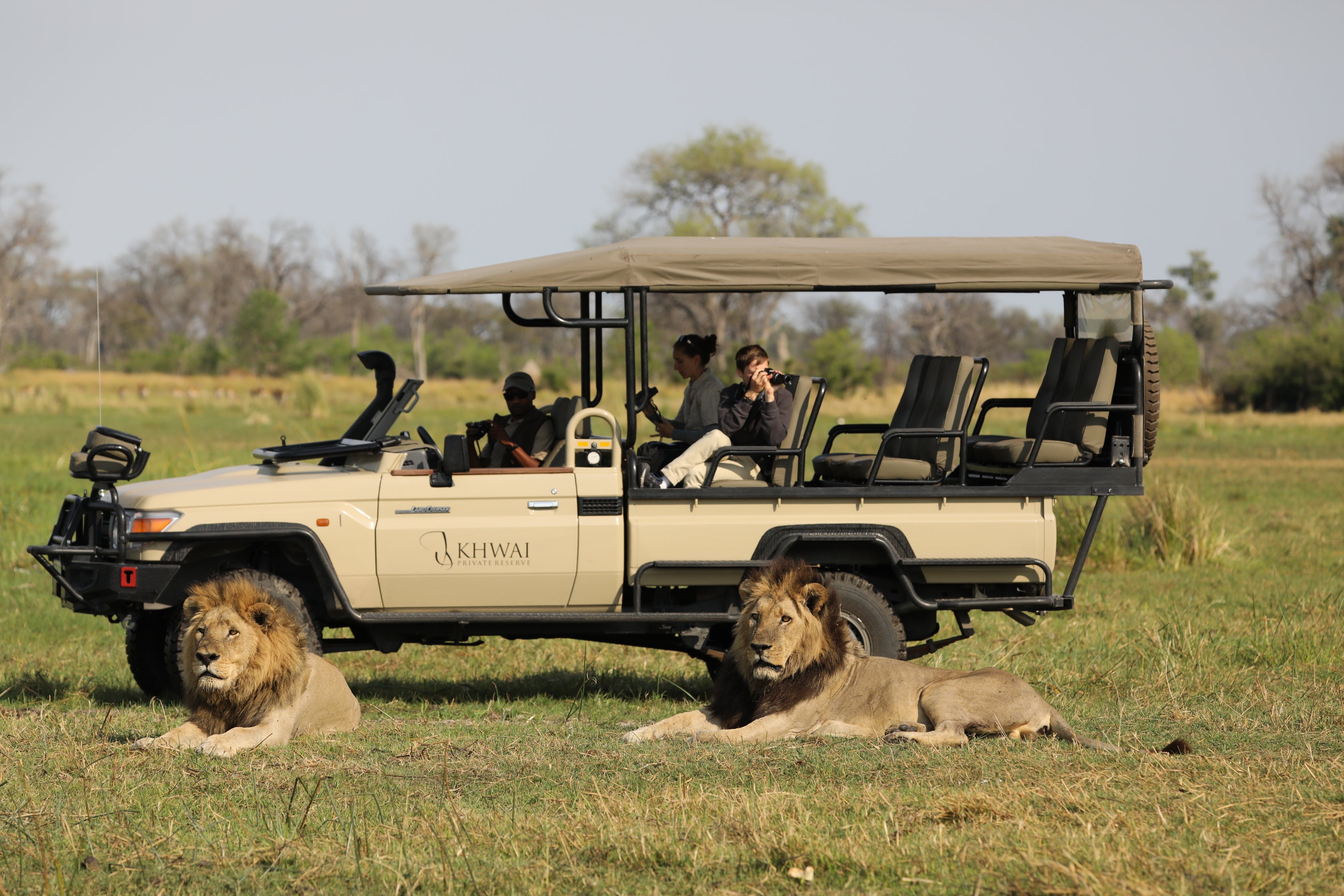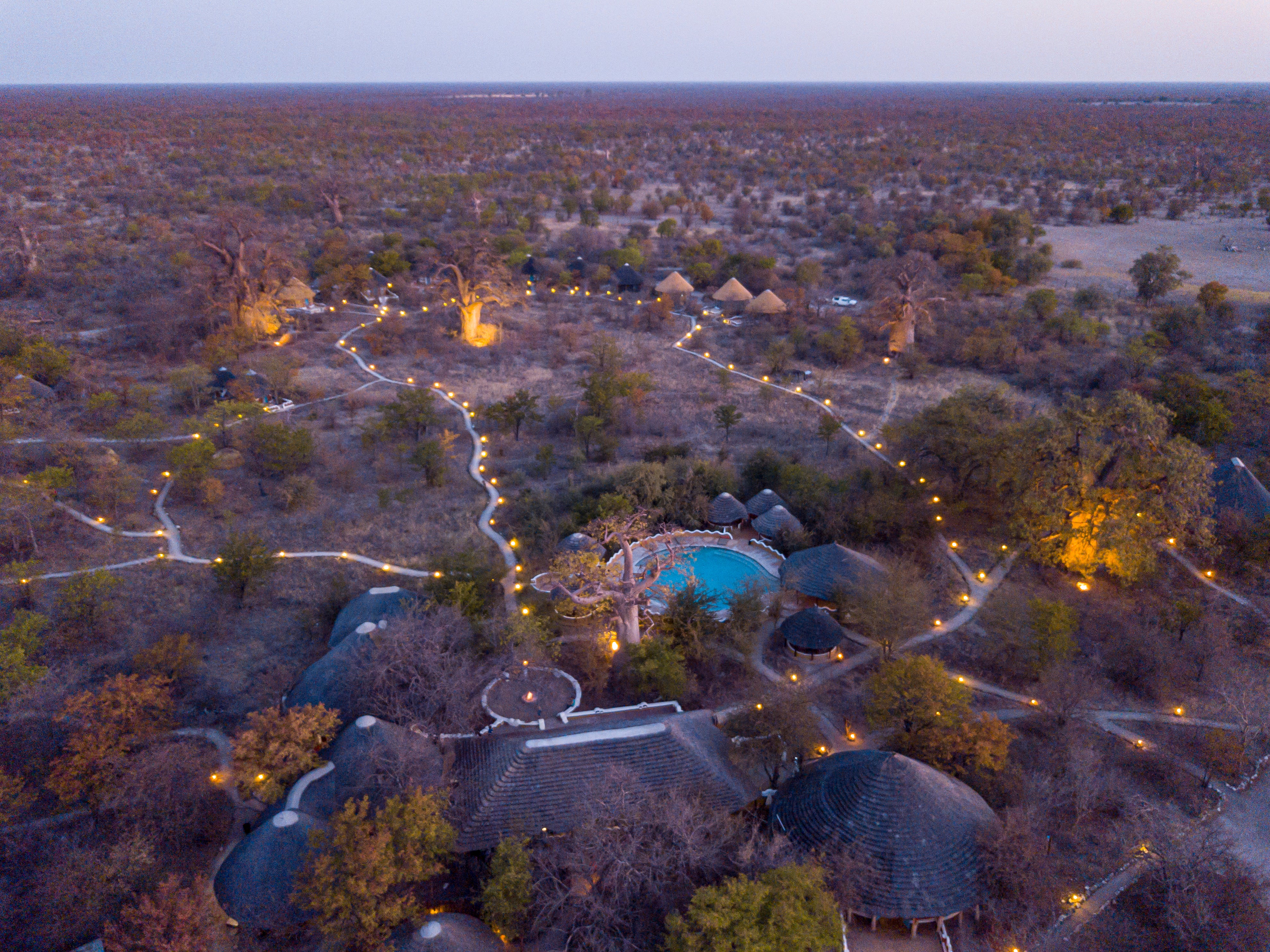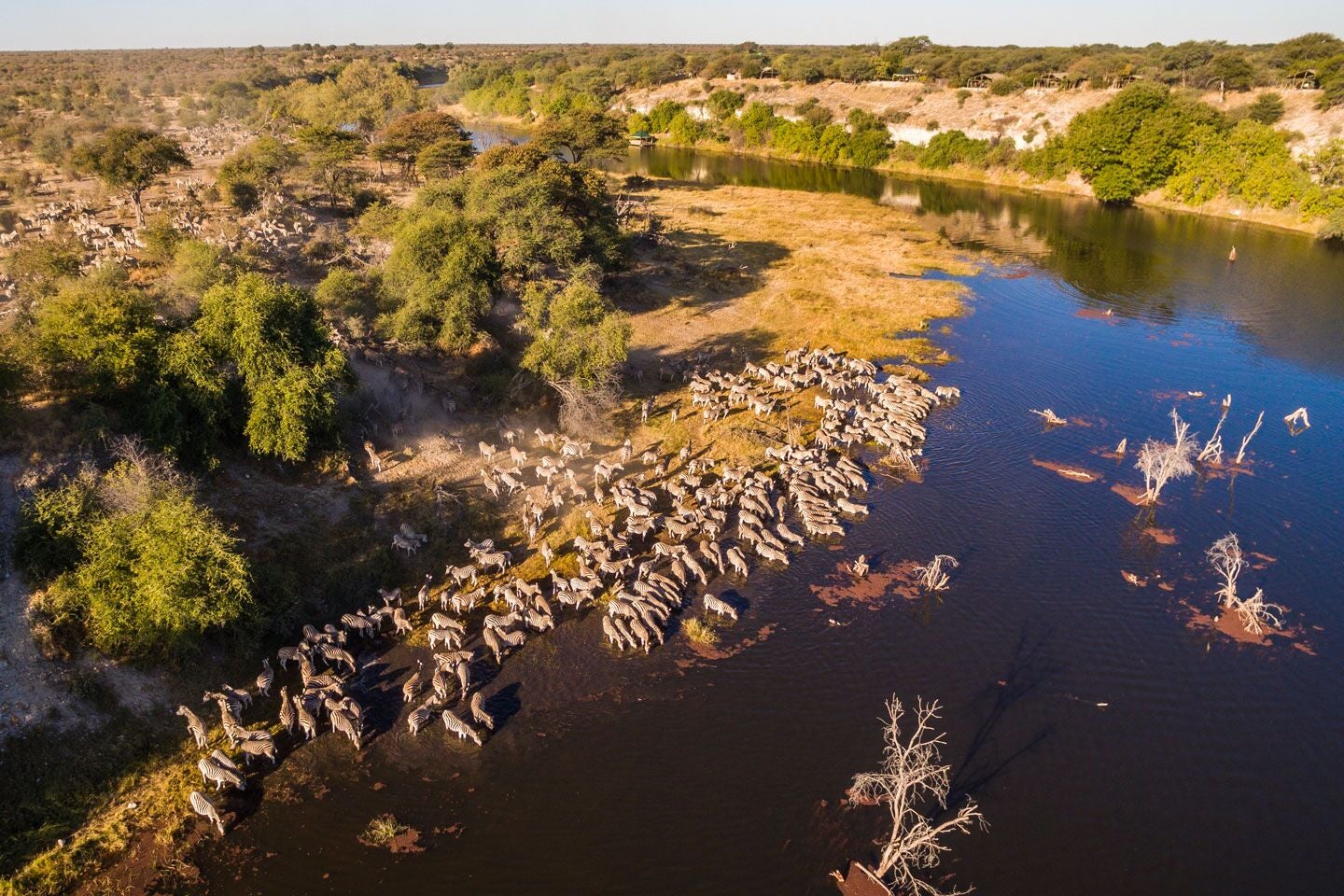How to safari in Botswana on a budget
One night at a luxury lodge in Botswana can cost more than a month’s rent on a London flat. But, as Lizzie Pook argues, you can explore the country without paying through the nose

Rich in wildlife and home to some of the very best guiding around, Botswana is also the proud owner of some preposterously pretty scenery, from the sun-scorched Mkgadikgadi salt pans – where lone ostriches streak across the heat-blurred horizon and dormant bullfrogs hang in suspended animation metres below the surface – to the meandering Okavango Delta with its lion-stalked treelines and waterways coiling like the body of a huge serpent. But these epic landscapes come with a similarly epic price tag, and many of Botswana’s safari lodges – most of which are high-end, catering to wealthy empty-nesters and honeymooning couples – cost upwards of £1,000 a night. But it is possible to safari here without having to sell a kidney. Here’s how.
Take your own tent
Botswana is superbly set up for self-drive safaris, and you’ll find brilliant campsites – with slick shower blocks, electricity, and barbecues – smattered across the country. You’ll need to rent a 4x4 to avoid getting mud-logged in some of the national parks (such as the elephant-laden Chobe) so a rooftop tent is a convenient, space-saving way to camp on top of your car.
You can sleep with nothing but a sheet of canvas between you and huge eagle owls on the hunt, or willowy giraffes who pull leaves from the surrounding trees
At Senyati Safari Camp (from £13 per adult) in the Lesoma Valley, you can sleep with nothing but a sheet of canvas between you and huge eagle owls on the hunt, or willowy giraffes who pull leaves from the surrounding trees. There’s also a submerged elephant hide, a well-stocked bar overlooking a watering hole where hyenas and buffalo come to drink, and each camping spot comes with its own toilet and hot water shower.
Elsewhere, in Maun, the Old Bridge Backpackers (from £7 per adult) is a lively spot, with plenty of foliage-fringed sites for setting up your tent (and listening to the pulse-raising sound of animals pottering around you at night). As well as day safaris into the nearby predator-filled Moremi game reserve (from £209 for two people), they also organise community-run mokoro (dugout canoe) trips (from £79), so you can get knee-high to the elephants for a fraction of the cost of those run by the luxury lodges.
Choose a ‘budget’ property in a brilliant location

If you don’t fancy the rigmarole of hoisting up a roof tent every night, there are a handful of truly excellent (and wonderfully robust) safari lodges in Botswana that don’t cost the earth. In fact, a clever way of ensuring you have just as fine a safari experience as the grey nomads spending their grandchildren’s inheritance, is to find an obscenely high-end lodge, then search for a more affordable camp in that same reserve or concession. After all, you’re going to be looking at exactly the same animals, whether or not your room comes with a mahogany four-poster and champagne on arrival.
The Khwai Private Reserve sits in Botswana’s lush Greater Okavango region; an area known for its exceptional safari sightings. Here, you’ll find the Little Sable, a polished by unfussy tented camp that peeks out from the thick, wildlife-speckled bush. Each of the eight Meru-style tents here comes with a private veranda (offering views of rare sable antelopes, grazing elephant and sometimes even militant packs of rare hunting dogs that dash in perfect formation through camp) and guides are switched on and enthusiastic, taking guests on twice-daily drives though the lily-littered wetlands in search of lions, leopards and Jurassic-looking wattled cranes.
Consider a safari hostel
Hostels don’t have to mean hair-clogged communal shower drains and strangers snoring like garrotted hyenas in the top bunk. Sometimes they are done exceptionally well, as is the case at the brilliantly perky Planet Baobab (from £89 per night), approximately 120 miles east of Maun. Entirely fenced – in order to keep out the elephants – and with a huge aardvark sculpture at its entrance, this budget safari “hostel” is home to 13 gnarled baobab trees, which stand like sentinels among powered 4wd camping spots and 18 traditionally-decorated huts.

Each hut comes with a thatched roof, comfy beds and always-warm showers. Wall art is made using the pigment of nearby termite mounds and in the central “shebeen” bar you’ll find decent meals (from £2.80), quirky cowhide stools and a chandelier made out of 400 bottles of (entirely non-Botswanan) Carling. There’s also the largest swimming pool in the Kalahari and friendly staff offer a number of excursions and activities (at an extra cost), including local village visits and “green season” safaris into the nearby Makgadikgadi Pans National Park, where you can search for magnificent black-maned lions and marvel at the spectacular 75,000-strong zebra migration.
Best of all though are the Ntwetwe salt pans sleep-outs, where you can quad-bike out onto stark, desiccated salt flats the size of Switzerland, visiting a family of habituated meerkats on the way who scrabble furiously in the dirt before hauling out huge scorpions for their supper. Once out on the pans, with clothes cloaked in icing sugar dust, you’ll have only shooting stars and the crackle of the fire for company as you bed down in sleeping bags under the vast African sky.
Stay outside the national parks
Sometimes finding yourself just outside of the “action” is the very best place to be, and this same rule applies while on safari. Choosing a camp that sits alongside a national park boundary – rather than inside it – can prove more affordable (and more peaceful) while still yielding a glut of wildlife sightings.

The beautiful Meno a Kwena (from £376 per night) is a sand-dusted old-style safari camp teetering on the banks of the Boteti River, through which thousands of migrating zebras slosh. It also happens to be the place where Prince Harry brought Meghan on her very first visit to Botswana. You need do little more than stagger a few metres from your tent to watch wildlife here as, crucially, the river marks the western boundary of the Makgadikgadi Pans National Park, so don’t be surprised to hear the throaty, heart-skittering sound of a male lion’s territorial call in the dead of the night, or to find the sand surrounding your tent crisscrossed with a maze of leopard tracks when you wake in the morning.
Decor here is charmingly well-worn – think antique globes, Lepidoptera cabinets and battered leather luggage – and, for when you’re not out seeking spindly-legged secretary birds or sleuthing coalitions of cheetah on safari, there are plenty of romantic spots for tucking yourself away and watching the (natural) world go by, making this wild-luxe camp perfect for a wallet-friendly honeymoon. Well if it’s good enough for royals…
Travel essentials
For more information on Planet Baobab, Meno a Kwena and Little Sable, see naturalselection.travel.
Book through Africa Exclusive.
Join our commenting forum
Join thought-provoking conversations, follow other Independent readers and see their replies
Comments
Bookmark popover
Removed from bookmarks